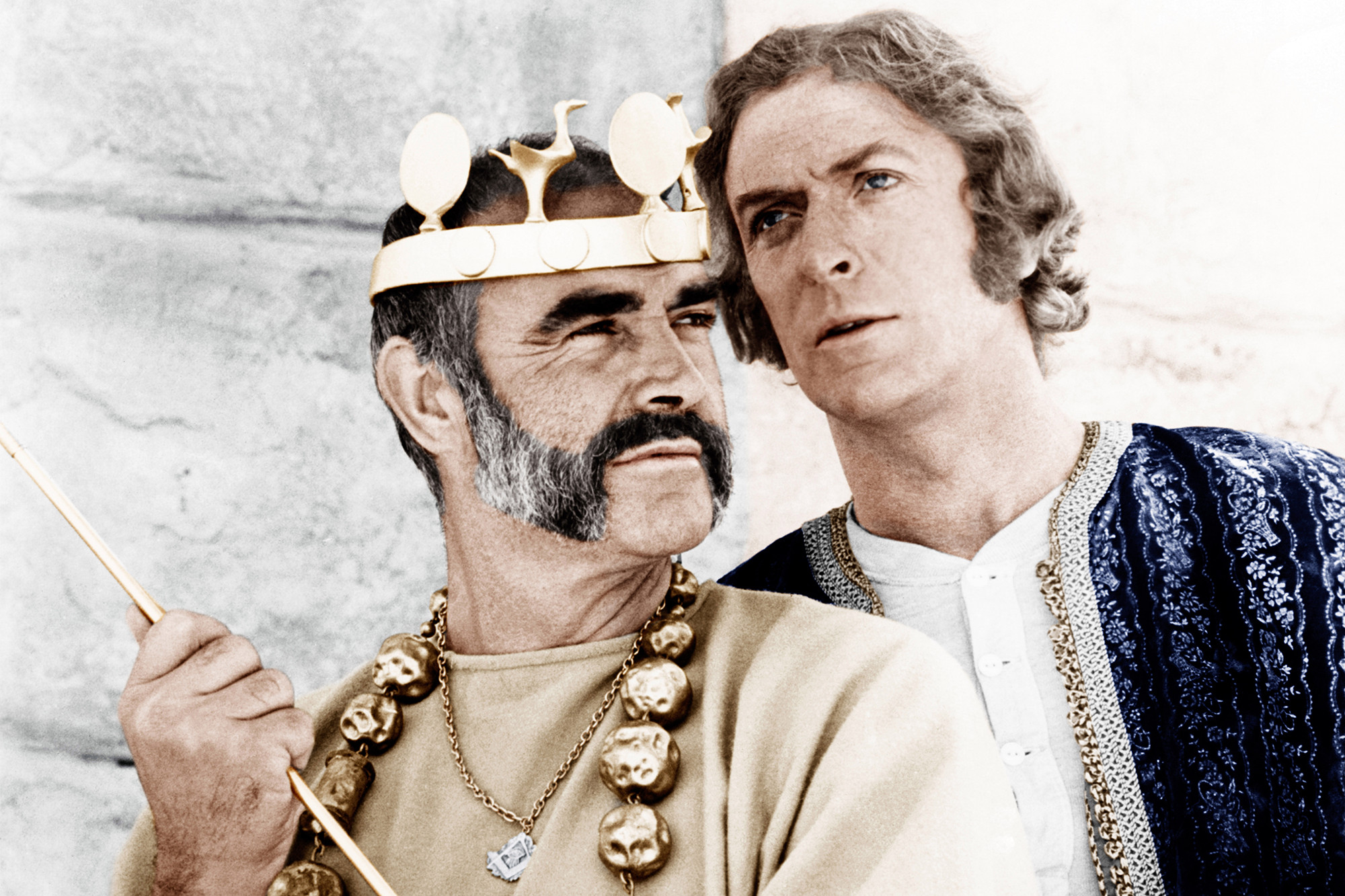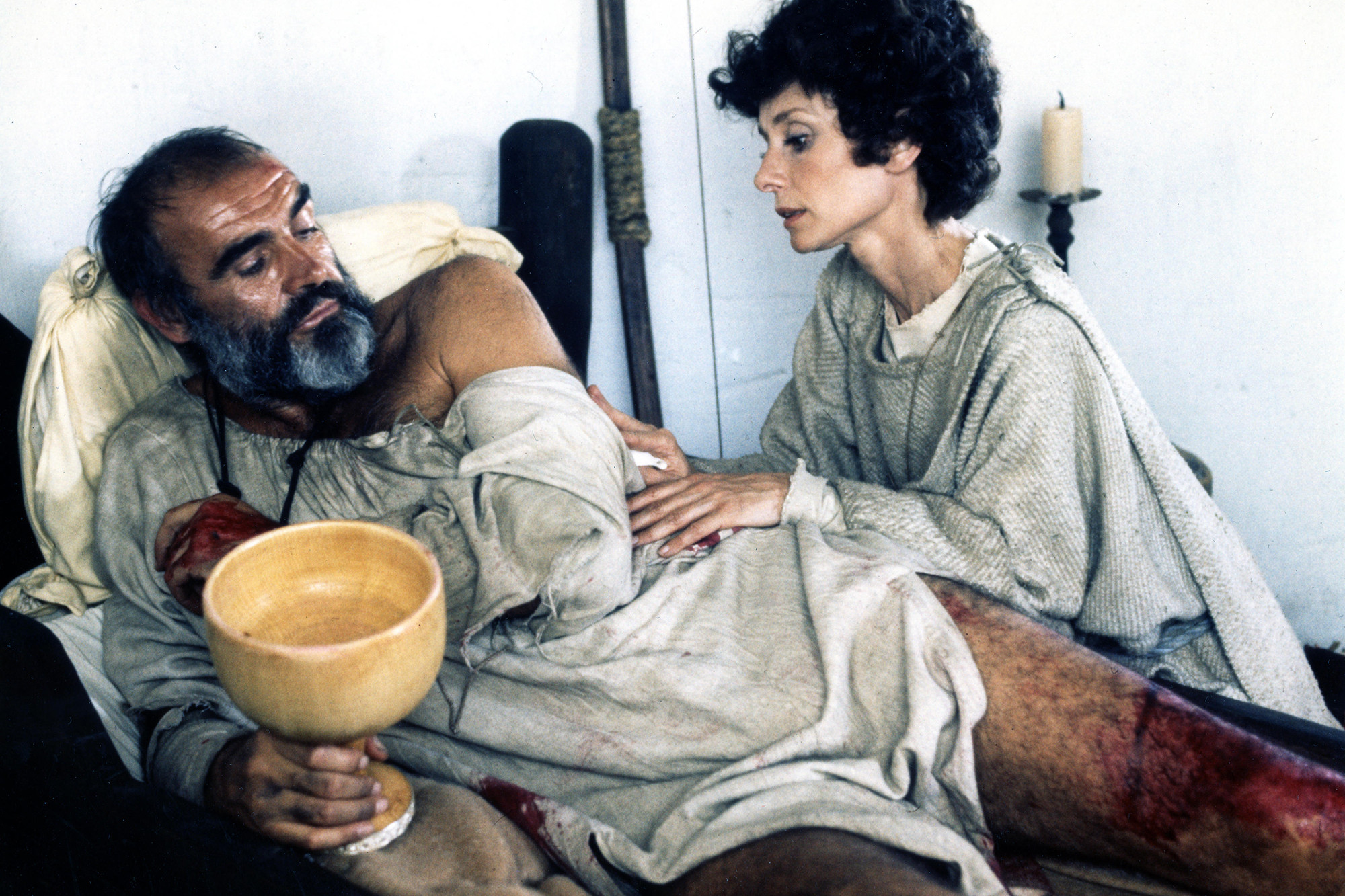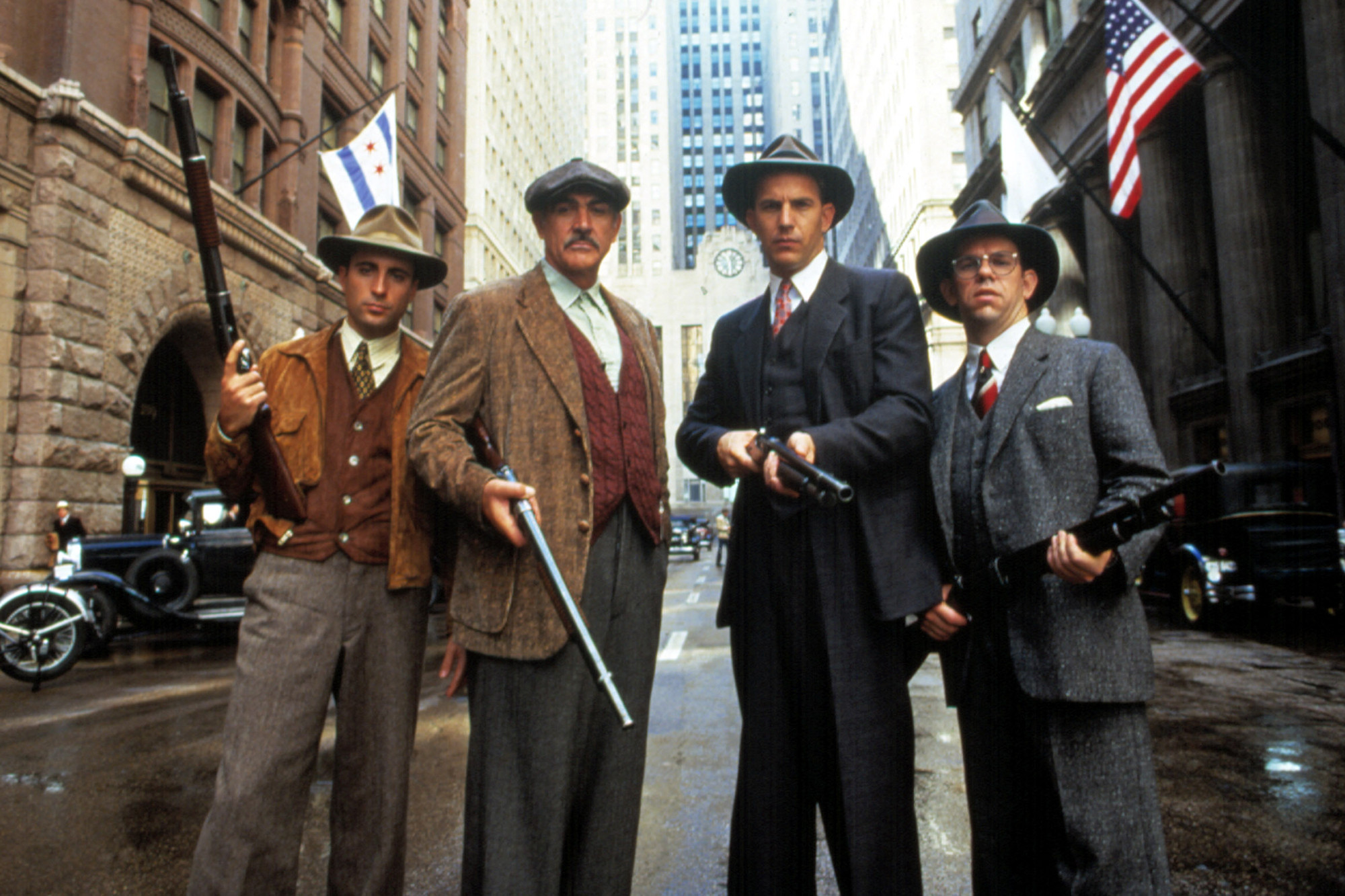More On: celebrity deaths
‘Below Deck’ Captain Mark Howard’s Death Sparks Investigation: What We Know
'Below Deck Mediterranean' Season 1 Star Captain Mark Howard Dead
'Devastated' Alec Baldwin Is 'Trying to Make Amends' After 'Rust' Tragedy
‘Rust’ Star Jensen Ackles Shares Tribute Halyna Hutchins After Fatal Set Shooting
‘Friends’ Alum James Michael Tyler Dead at 59 After Cancer Battle
James Bond may have been the ultimate British adventurer-rogue, but when I think of great Sean Connery portrayals, my mind goes right to Danny Dravot, aka “The Man Who Would be King.” Connery and
James Bond may have been the ultimate British adventurer-rogue, but when I think of great Sean Connery portrayals, my mind goes right to Danny Dravot, aka “The Man Who Would be King.”
Connery and Michael Caine had the time of their lives playing two scrappy British sergeants out to retrace the steps of Alexander the Great and conquer Afghanistan in the exhilarating 1975 John Huston film based on Rudyard Kipling’s novel. At one point Danny and Caine’s Peachy Carnahan are trapped on a mountain with no possible means of escape. And what do they do? They have a laugh about all the good times they’ve known. A big, roaring, boisterous laugh. Such a laugh that the two men touch off an avalanche which creates a bridge of snow over a chasm that allows them to escape. That was Connery and Caine throughout their careers — two working-class blokes bluffing themselves to one great big merry laugh of a life.
As great as the scene is, it is surpassed by the (spoiler alert) climactic moment when Danny’s luck runs out. Danny, who in battle was seen taking an arrow in the leather bandolier across his chest, becomes a god-king to the natives, who believe following this lucky incident that he must be immortal. He and Peachy help themselves to all of the riches they can plunder and Danny takes the most beautiful girl for his bride, but naturally the ruse is discovered. So he bows to his fate and takes it like a man.
Sent out on a rope bridge over a gorge, understanding that he is to be executed by being made to plummet into infinity, he … sings. Loudly and lustily: “The Son of God goes forth to war/a kingly crown to gain …” It might be the greatest death scene in cinema history, bluff and hearty and entirely free of regret. How grand it is to think that Connery was merely halfway through his 90-year life.

Two other great death scenes displayed Connery’s range, his emotional warmth, his vitality: in “Robin and Marian” (1976), in which Connery plays Robin Hood at the end of his life and an incandescent Audrey Hepburn plays his lady fair in what turned out to be her final great performance, on his deathbed Connery’s Robin delivers an indescribably beautiful farewell: “I love you. More than all you know. I love you more than children. More than fields I’ve planted with my hands. I love you more than morning prayers or peace or food to eat. I love you more than sunlight, more than flesh or joy.”
Then he fires an arrow into the distance and asks Little John to bury them both where it lands. Anyone who thought of Connery as merely a wisecracking tough guy was sharply corrected by the emotional warmth he brought to this moment, and yet an even greater role was still to come.

Connery was the ideal choice to deliver David Mamet’s deathless line “Isn’t that just like a wop — brings a knife to a gunfight” in “The Untouchables,” the role that was smart enough and different enough from his stereotypical parts to finally earn him his Oscar. Connery’s Malone is more of an old fox than a wolf, backing up the younger characters with tactical advice, but when he fails to anticipate one enemy maneuver it costs him about 50 bullets to the chest we’d seen proudly bared so many times.
Such was the power of Connery’s life-force that it seemed plausible that Malone could somehow hang on long enough to hand off one final clue to Kevin Costner’s Eliot Ness, and one final call to arms: “What are you prepared to do?” So often effortless, sly and dapper and cool, Connery was now desperate, torn, and mortal, and yet equally riveting. Whether prowling through a casino in a dinner jacket or crawling bloodily into eternity, Connery was the kind of movie star who embodied the way things ought to be done — how to love, how to laugh, how to live, how to die.

Kyle Smith is critic-at-large at National Review














